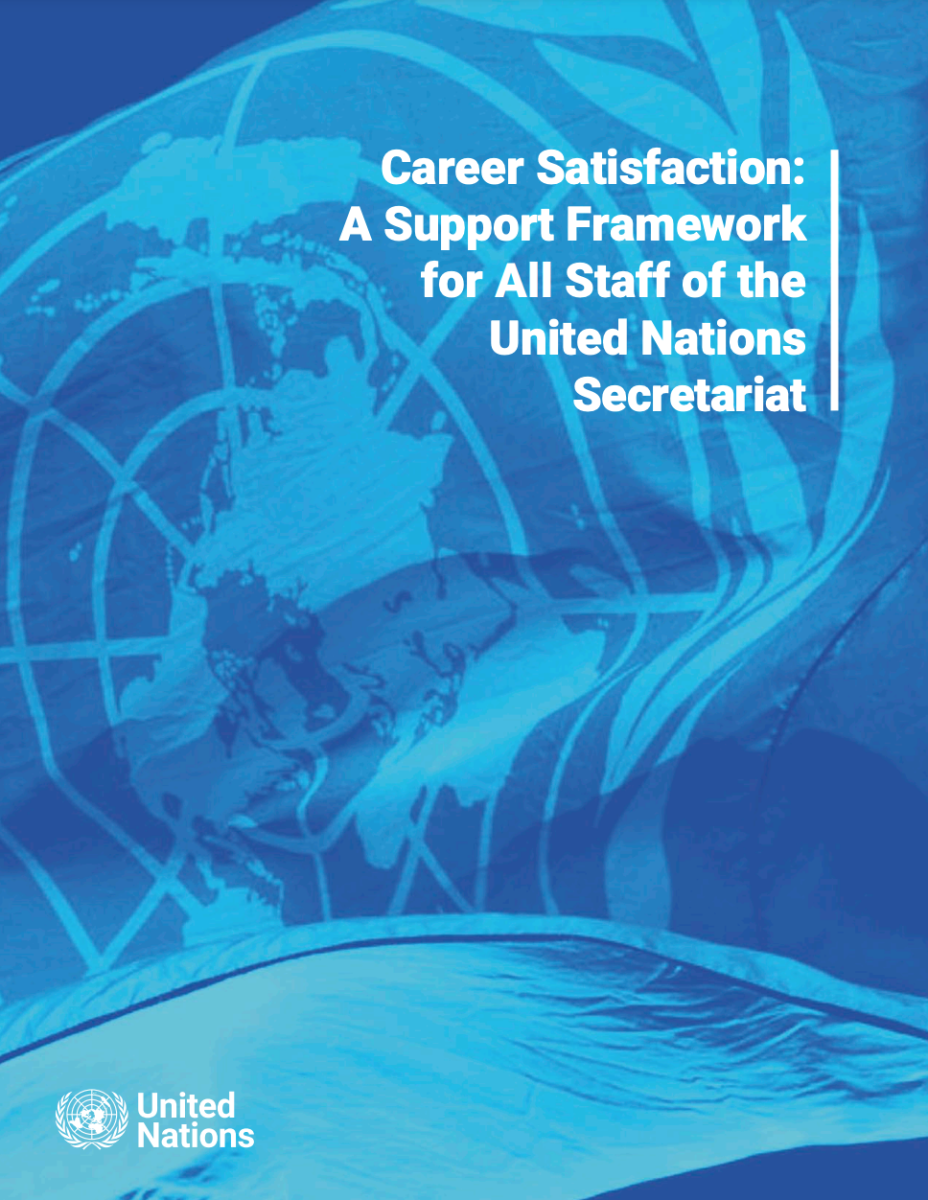YOUR CAREER
Your career at the United Nations is made up of the jobs you undertake, the experiences you gain, and the personal and professional fulfilment you achieve along the way.
The wide range of functions and mandates at the United Nations offers staff many opportunities and potential career paths.
| What is a successful career at the United Nations?
Here are some key elements as presented in the Career Satisfaction Framework:
|
|
| Explore the Framework (French) to learn more about the Organization’s perspective on career journeys and the many benefits – and challenges – of a UN career. Also explore the resources below to find out about the actual experiences of UN staff members. You will see the many career paths and the varying types of motivations that drive them. |
|
Humanitarian Leadership Stories
How do I get support for my career?It’s important to understand that there are shared responsibilities for career support:
Resources provided by the Office of Human Resources include the Career Workbook, a UN system mentoring programme, career webinars and a wide range of self-directed learning programmes, including through LinkedIn Learning and the Leadership and Management portfolio. Your local HR office may provide other tools or programmes. Check with them to understand what is available at your duty station.
Check out the Career Centre site on the Knowledge Gateway for more information (a password-protected site for staff only). |


